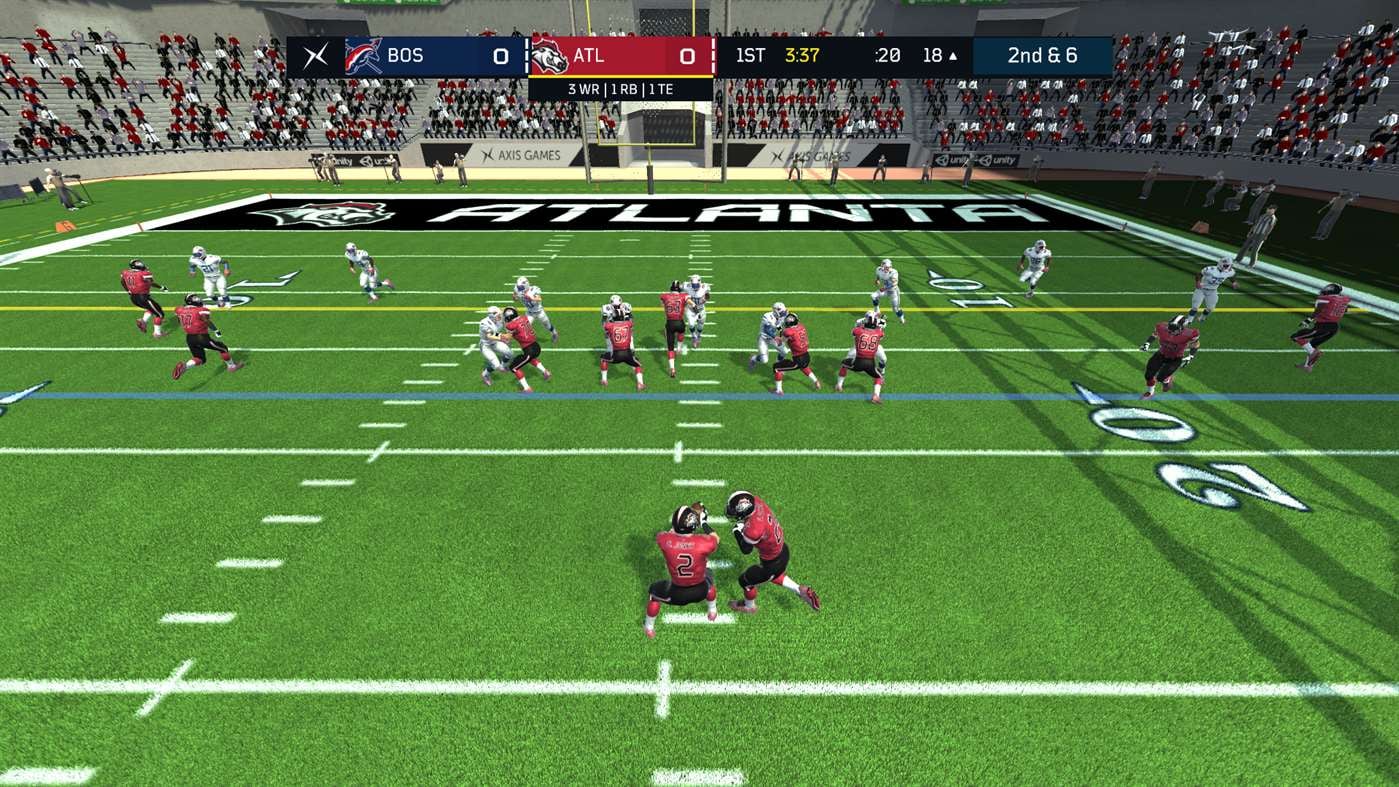
A fundamental skill in soccer is the ability to play midfield. You must win the ball to stop the opposing attack from exploiting your weaknesses. Also, you must maintain a high level of play and possession throughout the game. These are some tips that will help you play in midfield.
Assist in the defense
Assisting with defense is a vital role in the game. As a defender, you have the chance to prevent an opponent from scoring, if you play your role effectively. When an attacker attacks, it is important to remain calm and composed. Otherwise, they will lose their energy and produce very little results. Even when their team scores, the best soccer goalkeepers never lose sight of the game. Your career as a soccer player will be filled with many challenges.
Playing defense is a game of keeping in line. Do not try and be a playmaker. Keep it simple. Always keep in mind your opponents' positions. Don't get too close or too far from the attacker. It is important to maintain control of your position, stance, and distance at all times. Your teammates should be able anticipate the ball and allow you to attack.

You can create scoring opportunities
When playing midfield, it's crucial to create scoring opportunities for your team. This can be difficult for some players, but it's a crucial part of the game. A well-rounded, balanced midfielder will always have the ball in their hands, know where their teammates are moving, and be able to make decisions. This will enable them to create opportunities for scoring and help them find a way in the box.
An excellent midfielder will have the ability to create opportunities and pass to his teammates with accuracy. An effective midfielder will be able not only to score goals but also help his team by being patient and supportive. An effective midfielder can create scoring opportunities by encouraging his teammates and communicating with them. In addition to this, a good midfielder can play like a coach, encouraging them to work harder and score goals.
The ball should be kept in your hands
Every player on the soccer pitch must be able keep the ball in their possession. As a player in the midfield, you will be constantly in possession and must pass the ball correctly to your teammates. If you want to score more goals, passing the ball to others will help you do so. Accuracy in passing is crucial for your role as the "go-between" for your team.
In a typical soccer game, players in the middle are encouraged and encouraged to help one another. It's important to always have the ball at you feet so that you can quickly regain it. It's crucial to practice defense against the counterattacks of the opposing team as the game progresses. Additionally, you should be able to play in all conditions, including a defensive zone or an attacking zone.

Keep up the pace
To reach your goal of progressing in the midfield, you must keep up with what is happening. The best midfielders move fast, creating space and opportunities for their team. This gives them the time to think about what's next. You must be well-placed and tactically sound to play midfield in soccer. The following are some of the tips for playing midfield in soccer:
o Keep fit: You need to be able to cover the whole field when you play in midfield. The first line of defense against attacking teams is the midfielders. Their job is to setup the rest of the offense. They also play a key role in passing the ball and setting up players for the offense. If a midfielder doesn't have the right physical fitness, chances of scoring a goal are very slim.
FAQ
What is the role of a striker in soccer
The fastest players on the field are the strikers. They are skilled at running up and down the field, and then shooting the ball towards the goal of their opponent.
What does a defender do in soccer
Defenders defend against attackers who are trying to score goals. Defenders are trained to tackle and block shots in order to keep their opponents from scoring.
What is soccer?
Soccer is an international game played by two teams. Each team has a goal at one end. The goal of soccer is to determine which team has the most goals. Additionally, rules govern how the ball can be handled and who may play it. While soccer was a sport that has existed since the late 1800s, in England it was not recognized by FIFA until its first international championship in 1930. Today, over 200 countries have their national federations. These governing their own leagues or tournaments. Since 2016, soccer is played by more than 3Billion people in the world.
What is a football pitch?
A soccer pitch consists of a rectangular grassy area divided by a crossingbar. The attacking area is where the offensive side tries scoring goals. The other half of the field is known as the defensive zone, where the defensive team defends against attacks made by the offense.
Statistics
- The word "soccer" is a British invention that British people stopped using only about 30 years ago, according to a new paper by University of Michigan professor Stefan Szymanski. (businessinsider.com)
- Even with the new issuance, control of the club will be retained by the Glazer family as they will retain 67% of B shares which have voting power, so little will likely change in the general approach taken to the finances of the club. (sites.duke.edu)
- The Laws of the Game do not specify any player positions other than goalkeeper, [74] These positions are further subdivided according to the area of the field in which the player spends the most time. (en.wikipedia.org)
- From the 1850s onward, industrial workers were increasingly likely to have Saturday afternoons off work, and so many turned to the new game of football to watch or to play. (britannica.com)
- At the 2018 FIFA World Cup, Belgium playmaker Eden Hazard, renowned for being difficult to dispossess, set a World Cup record for successful dribbles completed in any World Cup game since 1966, with a 100% success rate in ten dribbles against Brazil.[10] (en.wikipedia.org)
External Links
How To
How to play football
Playing Soccer requires you to have good skills such as dribbling, passing, shooting, heading, tackling, etc. These skills should always be improved. The most important thing to do is practice them everyday. If you want to learn how to play soccer properly then follow these steps.
-
Practice dribbling. Do some practice on the field. You should practice dribbling in 5 minute bursts. When you feel confident with dribbling the length of your practice should be increased to 10 minutes. Keep practicing this technique daily.
-
Practice passing. Practice passing the balls in front of and behind your eyes. Be sure to pass the ball correctly and only to the person who has space. Don't throw too many passes. It is best to throw the ball straight to the player that needs it. This way you can save energy and keep your body warm.
-
Practice heading. Heading requires you to place the ball perfectly into the net. This goal can be achieved by practicing getting in position. Stand next to the goal line and face the target. Then, bend forward slightly so that the ball is under your chin. Next, raise you head up and point your eyes towards the net's top left corner. Your eyes should be directed straight ahead. Finally, raise your arms and let go of the ball.
-
Practice tackling. Tackling is a difficult skill to master. This skill can make football more exciting when it is mastered. To begin, you should tackle with your chest and shoulders. Do not go too low. Remember to keep the arms straight up and close to the body. Two players are better at tackling each other. One person acts as the defender and the other is the attacker. The attacker should be tackled immediately after he has passed the defender.
-
Learn how to shoot. You need to practice shooting. First, find a spot where you can comfortably shoot from (i.e. The goal is near your target. Focus on your form. You can hold the ball between your fingers, but keep it away from your body. Point your toes towards the sky by bending your knees. Your wrist should be moving in a circular motion as you aim to hit the ball. Aim for the bottom right corner of the goal.
-
Practice running. Running takes practice. You can start slowly, and then gradually increase your speed. You should not use running as a way to attack because it can tire your muscles. Instead, run towards the goal to assist your teammates.
-
Practice kicking. Kicking is not only one of the most difficult skills to master, but it's also one of your easiest. In order to kick accurately, you need to develop strength in your legs and core. Place both feet together and lift one leg at a time. Slowly kick with your heels the ball towards you.
-
Keep practicing dribbling. This skill is crucial to being a great player. Dribbling allows for you to control your game's pace. Without it, the opposing team would have no trouble catching up to you or even overtaking you. Consistency and consistency are the keys to mastering dribbling. You should not change how you dribble daily. Stick with what works for your body.
-
Do not practice kicks. Free kicks are usually delivered after a foul or when the goalkeeper commits a mistake. Free kicks are a way to score goals and not have to play the match. Always aim for the corners of your goal. Keep in mind to use your instep instead of your heel.
-
Practice defending. It is all about position. Always keep in close proximity to your opponent's player while playing defense. If the ball is handed to you, stop him from scoring. Always be attentive to your teammates' safety.